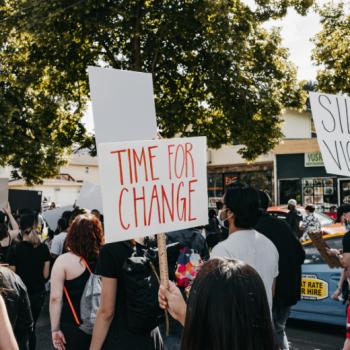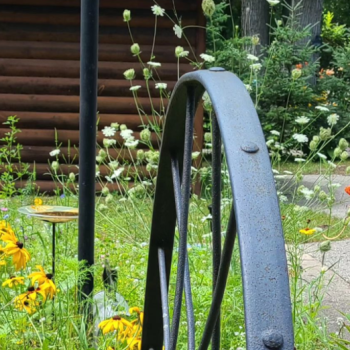Trauma isn’t just something that happens to us directly; secondary trauma can also come from the heartache we carry for others. Understanding our trauma responses as we seek justice is essential as Christians.
Meeting Jesus As We See Injustice
Since putting together the Five Phases of Rising Up Guide I’ve paid a lot of attention to the way people respond to social issues and why. I’ve definitely noticed how trauma frameworks and personality contributes to the way we respond to injustices. In our pursuit of justice and compassion, many of us—especially those actively engaged in advocacy or ministry—find ourselves emotionally and spiritually depleted. I know this personally, and I know I’m not alone. As we watch the news, read stories of oppression, or pour ourselves into serving those who suffer, we can absorb a secondary trauma that subtly shapes our reactions and drains our strength.
I am grateful though, that Jesus sees that, too. We don’t follow him caring for others without receiving his care for ourselves. He invites us to bring our burdened hearts to Him, to recognize our humanity in the face of injustice, and to discern our responses through the lens of grace, not just our hard work.

Flight, Fight, Fawn, and Freeze
I’m not a therapist, although I have talked with other therapists about the secondary trauma we take on through engaging in news consumption or feeling overwhelmed learning about injustices. In addition, the trauma-informed training and research I’ve done on our responses to injustice have helped me feel confident in recognizing these: Flight, Fight, Fawn, and Freeze.
After practicing and leading in activism spaces for 20 years, these are the parallels I see to trauma responses when people become aware or engaged in fighting justice.
Responses To Injustice:
#1. Outrage
The first is outrage. I often call this angry activism or righteous indignation. The danger of this is that outrage typically results in call-outs or cancel culture, which do not produce accountability or lead to sustainable change. This response to injustice can be linked to the fight-or-flight response to trauma. Even if we are experiencing this trauma second-hand, it still affects us deeply and we get into protective stances to defend those most vulnerable, especially as our empathy increases.
Yes, we see examples of righteous anger like this in the Bible–even in Jesus at the temple, clearing out those making a marketplace of the court of the Gentiles, preventing women and foreigners from being welcomed there. But sustaining this level of anger is both unhealthy for our body, and can easily switch to vengeance, bitterness, and rage.
#2. Withdraw
Withdraw reflects the trauma responses of freeze or flee. People who turn off the news beyond seasons of cocooning or like to pretend nothing is happening are usually responding to feeling overwhelmed by secondary-trauma to the social issues that is at hand. And although this response makes sense, it too is something we have to practice overcoming or else we will never become active in a healthy way to create social change.
Jesus’s example shows a willingness to be present in suffering, and to even weep with others. How can we go to God for strength and renewal so we can be aware of others needs again, even when it makes us uncomfortable?
#3. Do Everything
This response, to do everything, can also reflect the trauma response of fawning. My experience with burnout in practicing doing good can be linked to this response. If you also tend to “fawn” in danger (people-please), you might find yourself responding to social issues by trying to carry and manage it all in order to bring peace to conflict. We try to be as empathetic and understanding of every perspective, and try to do good on all fronts. But we can’t hold that all for others, give to this degree, and care for ourselves at the same time. Even if our response makes sense, it isn’t our job to do everything. Jesus might be a savior, but that isn’t our job.
Recognizing Our Trauma Responses
I feel like this goes without saying, but I am just going to say it loud and clear–pay attention to your responses to the news or other information about injustices that is coming at you! Pause and notice. Ask yourself questions like these:
- How do I feel?
- What does it make me want to do?
- What response serves me best while staying connected and loving towards others?
- Ask yourself these three questions: What to do with a need?
Our responses to injustices overlap with trauma responses. And in this, the work of justice is not meant to be carried on our shoulders alone. Jesus is both our sustainer. As we grow in awareness of injustice, it’s vital to grow in self-awareness too—paying attention to how we react and why. Whether we fight, freeze, flee, or fawn, these responses are not failures. They are invitations—to healing, to deeper dependence on God, and to a healthier way of showing up in the world.
As we continue to seek justice, serve others, and even practice activism, may we also depend on God’s presence inside us, trusting him to hold us and heal us. Jesus, who wept over Jerusalem still weeps with us. As people led by God’s Spirit, we know that transformation begins both around us and within us.













